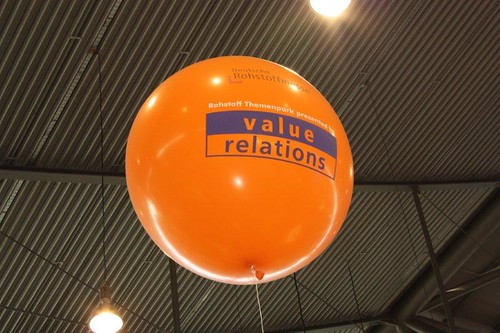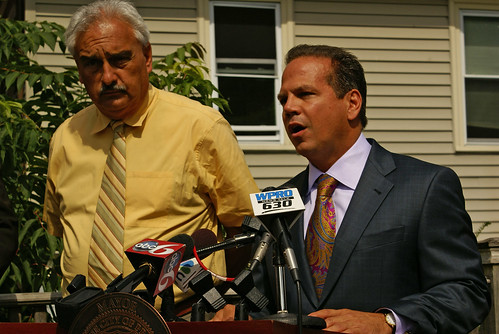You've without doubt seen these or study them. Glossy advertisements or four-color spreads in publications and magazines promising to show you every one of the juicy information regarding successful real-estate investing. And all you have to do to learn all these real est investing surface encounters chuck russo secrets is to pay a rather high sum for a one-or two-day seminar.
Often these kinds of slick real-estate investing classes claim that you can make smart, profitable property investments with absolutely no money down (other than, of training course, the significant fee you purchase the seminar). Now, how appealing is which? Make a profit from real estate investments you made out of no cash. Possible? Not most likely.
Successful real estate investment requires cash flow. That's the nature of any type of business or perhaps investment, especially real-estate investing. You put your cash into something that you hope and plan is likely to make you additional money.
Unfortunately too little newbies for the world of real-estate investing believe that it's any magical form of business in which standard company rules don't apply. Simply place, if you want to stay in property investing for a lot more than, say, a day time or two, then you are going to have to generate money to utilize and invest.
While it might be true that buying real estate with simply no money down is easy, anyone who is even made a simple real estate investment (like buying their particular home) is aware there's much more involved in property investing that can cost you money. For instance, what about any necessary repairs?
So, the number 1 rule people new to real est investing must remember would be to have obtainable cash reserves. Before you decide to actually do any real estate investing, save some money. Having slightly money within the bank when you begin real property investing surface encounters chuck russo can help you make more profitable real estate investments in rental properties, for example.
When real-estate investing in rental attributes, you'll want in order to select just qualified tenants. If you've no income when real-estate investing inside rental attributes, you might be pressured to take a much less qualified tenant since you need somebody to cover you money to enable you to take care of maintenance or lawyer fees.
For almost any real est investing, meaning rental properties or properties you purchase to sell, having funds reserved can permit you to ask for a higher price. You can request a higher price from your real estate investment because you surface encounters chuck russo won't feel financially strapped as you wait for an offer. You won't be backed into a corner and forced to accept just any offer because you desperately need the money.
Another downfall of several new to real-estate investing will be, well, greed. Make any profit, yes, but do not become therefore greedy that you ask regarding ridiculous leasing or resell rates on all of your real property investments.
Those new to real property investing have to see real estate investing being a business, NOT an interest. Don't think that real estate investing will make you rich overnight. What business does?
It requires about 6 months to determine if real-estate investing set for you. If you have decided in which, hey I enjoy this, then give yourself many years to really start earning money. It usually takes at the very least five years to become truly successful in property investing.
Persistence could be the key to be able to success in real estate investing. If you've decided that property investing is made for you, surface encounters chuck russo keep plugging away at it and the rewards will be greater than you imagined.
Ashton Kutcher probably gets more pitches in Silicon Valley than Hollywood these days.
The movie actor and technology investor turned up the star power at the TechCrunch Disrupt conference this week in San Francisco, where start-up companies competed for his attention. Michael Arrington, fresh off his own Hollywood worthy drama, interviewed Kutcher on stage Tuesday.
Kutcher plays a tech investor in real life and in CBS' top-rated "Two and a Half Men" on TV. His character, Walden Schmidt, is an Internet billonaire who sold his company to Microsoft and now backs other entrepreneurs.
"There are some parallels to my actual life," Kutcher said.
On the show, Kutcher said he covered his character's laptop with stickers of his "dream portfolio" companies but CBS balked at giving exposure to companies that hadn't paid for the privilege.
Kutcher told Arrington that his investments were a "witch hunt" for the next big thing "that is so magic you can't understand how it works."
"I wonder what would happen if a pilgrim would have seen a computer back in Massachusetts 200 years ago. They would have killed the person as a witch because the computer would look like magic. That's the essence of being a good investor, they're on witch hunts," he said. "That's what I’m trying to do."
Kutcher is not your typical celebrity investor. He was a biochemical engineering major in college so he gets technology but, because he was a model at 19, he says it's nice to be appreciated for "something substantial."
On TV Kutcher is in the funny business. But in technology he's hunting for happiness. Kutcher says he picks technologies that have the greatest potential to create more love, friendship and connectivity in the world.
He has made 40 investments in companies such as AirBNB, Path and Skype but does not disclose many of them.
"I think sometimes for the early-stage companies that I've invested in, disclosing that I'm an investor can be detrimental to the story of the company," Kutcher said.
RELATED:
Ashton Kutcher: Entrepreneur, investor
Star investors (and other stars) come out
Ashton Kutcher at TechCrunch50: Blah, blah, blah
-- Jessica Guynn
Photo: Hollywood actor and Silicon Valley investor Ashton Kutcher and TechCrunch founder Michael Arrington at TechCrunch Disrupt. Credit: Araya Diaz / Getty Images
Socially responsible investments might be emotionally compelling investments, but do they necessarily have compelling financial returns?
The term "Impact Investing" has taken on many meanings in the past few years. I want to end the confusion and underscore that impact investing must by definition deliver impactful and compelling financial returns.
Impact investing has been labeled as a subset of socially responsible investing (SRI). But, it is not a subset of SRI.
The basic premise of socially responsible investing is to avoid investing in businesses that cause harm to the environment or society. Since SRI's approach to investing is narrow and passive, it is by definition often a niche investing strategy, which in many cases has delivered lukewarm returns.
SRIs don't necessarily impact an industry, impact investments necessarily do. Yet, many organizations still treat SRI and impact investing like synonyms - causing confusion.
For example, here is the definition of SRI from ecolife, a website that is an online guide to green living:
"Socially responsible investing is an investment strategy employed by individuals, corporations, and governments looking for ways to ensure their funds go to support socially responsible firms. The concept goes by names like sustainable investing, impact investing, community investing, ethical investing, and socially-conscious investing; it is a non-financial gauge that is used when selecting various investment options that takes into account factors such as environmental, social, and ethical values."
The reality is that some socially responsible investments can be impact investments, but not all impact investments are socially responsible investments. So, SRIs are really a subset of impact investing. According to the Monitor Institute's new report "impact investors want to move beyond 'socially responsible investment'."
All impact investments have the potential to move towards a new economy - an impact economy, not all SRIs will. In fact, most SRIs won't.
Why? Impact investing is socially responsible and must have compelling returns. Returns that make the professional investor consider it seriously as a critical piece in the portfolio. According to Dr. Arjuna Sittampalam, research associate with EDHEC-Risk Institute, "in other words, the investor makes an active decision to seek a social or developmental return alongside their financial return."
Since impact investments create compelling returns, they have a greater chance of attracting more serious professional investors than SRIs -- a necessity for creating worldwide social change and impact.
The Global Impact Investing Network (GIIN) defines impact investments as those that: "aim to solve social or environmental challenges while generating financial profit. Impact investing includes investments that range from producing a return of principal capital (capital preservation) to offering market-rate or even market-beating financial returns. Although impact investing could be categorized as a type of 'socially responsible investing,' it contrasts with negative screening, which focuses primarily on avoiding investments in 'bad' or 'harmful' companies - impact investors actively seek to place capital in businesses and funds that can harness the positive power of enterprise."
This definition is more on target with the real definition of impact investing, but to revise part of GIIN's definition: Impact investments only include investments that can offer market-rate or even market-beating financial returns.
So, my definition -- impact investing must achieve four significant goals:
1. Make an impact in solving a pressing problem of our time,
2. Generate compelling returns for investors,
3. Generate growth for economies, and
4. Generate prosperity for developed and developing nations.
An example is my own case-in-point. I founded SunEdison that created the power purchase agreement (PPA) model for the solar industry. This business model used net metering, streamlined interconnection standards, ways to connect to the grid, and actually provided a new solar power service to customers.
Investments in PPAs are delivering 7-12% unleveraged after tax returns. In today's financial environment; these are compelling returns given the low risks.
Plus, PPAs have lowered the use of fossil fuels to deliver electric energy; created thousands of jobs worldwide and are growing. They have impactful financial returns and impact a big problem.
According to the Monitor Institute's new report Investing for social and environmental impact: a design for catalyzing an emerging industry "it is certainly plausible that in the next five to 10 years investing for impact could grow to represent about 1 percent of estimated professionally managed global assets in 2008. That would create a market of approximately $500 billion. A market that size would create an important supplement to philanthropy, nearly doubling the amount given away in the U.S. alone today."
But that is only a start, a start to an "Impact Economy." To really make a difference - to leverage impact investing to create an impact economy, it must be larger. Some estimate that we need to invest over $1 trillion to combat issues like climate change, poverty, and lacking global health, to put the world back onto a stable more equitable footing.
So, let's put our money where the impact is. Stop selling impact investors short.
Jigar Shah is CEO of the Carbon War Room, a nonprofit that harnesses the power of entrepreneurs to implement market-driven solutions to climate change and create a post-carbon economy.




